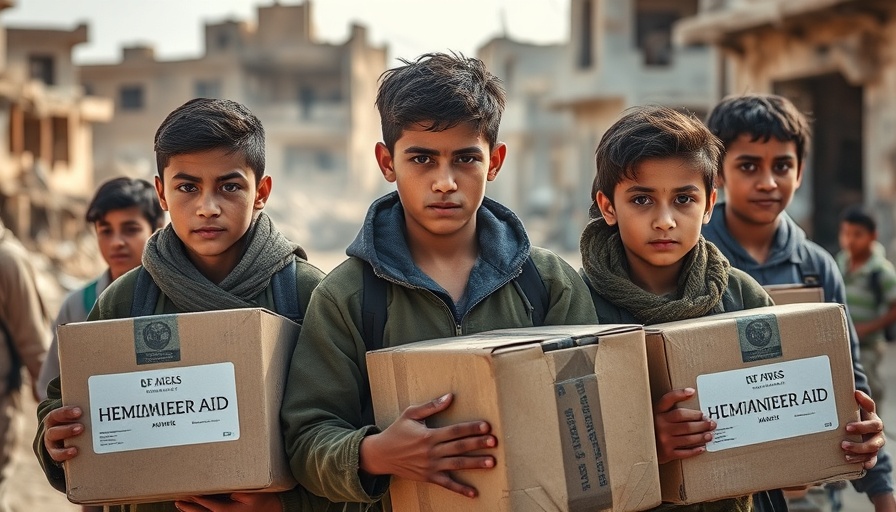
The Human Cost of Aid in Gaza: A Crisis Unfolding
The recent attacks carried out by Hamas against aid workers in Gaza have amplified concerns about both humanitarian operations and ongoing political dynamics in the region. Aid organizations have been struggling to operate amidst growing tensions, raising critical questions about the implications for Gaza’s vulnerable population.
Understanding the Context: Aid and Politics in Gaza
For years, humanitarian aid has been a lifeline for many in Gaza, where economic instability and ongoing conflict have compounded the challenges faced by the civilian population. The attacks on aid workers not only represent a direct threat to those providing essential services but also disrupt the flow of aid necessary for survival. The environment for NGOs operating in these areas can often be perilous, as political affiliations and factions dominate daily life.
Impact on Humanitarian Efforts: Increasing Risks
As noted by various analysts and humanitarian workers, the risk associated with delivering aid has sharply risen. NGO workers must frequently weigh their missions against the dangers imposed by groups like Hamas, which may view foreign assistance through a political lens. Such dynamics not only threaten lives but also create gaps in essential services, widening the existing humanitarian crises.
Reactions from International Communities
Global responses to these assaults have varied. Some international organizations have condemned the violence, while governments maintain a more politically charged stance. As nations grapple with their foreign policies concerning Gaza, the voices and needs of everyday citizens often become overshadowed by geopolitical maneuvering.
Future Implications: A Cycle of Violence and Apathy
Looking ahead, the implications of such violence are twofold. First, persistent attacks on aid workers may lead to a reduction in the number of international agencies willing to operate in Gaza, which can cause a significant decline in assistance for the local populace. Second, the cycle of violence and the resulting humanitarian crises may ultimately lead to increased political apathy and despair among the residents of Gaza, undermining any potential for constructive dialogue between various political factions.
Security Measures vs. Ethical Dilemmas
Interestingly, the attacks have sparked a conversation about the security measures necessary for aid workers versus the potential ethical implications of their presence in volatile regions. When working in dangerous environments, how do organizations balance the need for security with the imperative to assist those in dire need? This challenge reflects broader issues faced by the international community in conflict zones globally.
Conclusion: The Call for Accountability
The recent incidents in Gaza underscore the urgent need for accountability and protection for those delivering much-needed aid. As the international community watches closely, it remains crucial for NGOs and countries involved to adopt strategies that prioritize the safety of humanitarian workers while ensuring that the population receives ongoing support. In the complex dance of politics and humanitarianism, the focus must remain on the people whom these organizations are striving to help.
 Add Row
Add Row  Add
Add 




Write A Comment